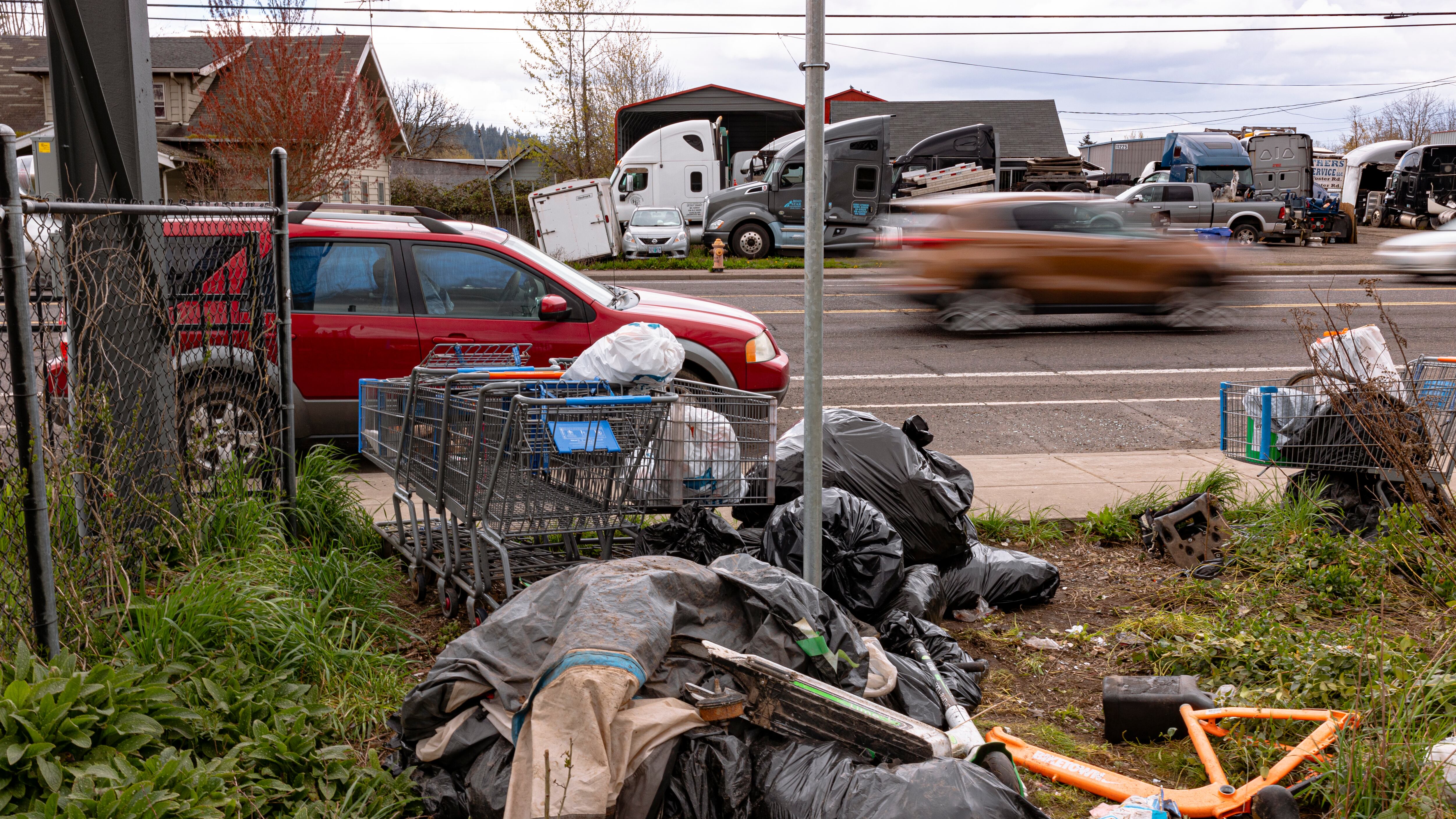A coalition of progressive advocates sent a stinging letter to Mayor Ted Wheeler this afternoon ahead of his planned announcement to ban camping along heavily trafficked roads. The letter rebukes the ban and advocates instead that the city slow down drivers.
“[We] strongly object to the emergency declaration to sweep encampments and further displace unhoused community members from alongside our most dangerous roads,” the letter reads. “The presence of unhoused people does not make our streets unsafe; rather poor roadway design, ongoing neglect and deferred maintenance, recklessness in the form of speeding, operating a vehicle while impaired by drugs or alcohol and other dangerous behavior are all well-documented reasons why there is this alarming uptick in deaths.”
Most notably, the letter’s signatories include several of the advocates who publicly decried the rise in homeless people killed while crossing streets. That suggests the mayor’s office did not consult the groups closest to the problem—and that Wheeler’s ban is poised to become the latest political impasse in a city paralyzed in the face of a housing crisis.
The 22 signatories to the letter include Oregon Walks, Central City Concern, The Street Trust, Urban League of Portland and Northwest Pilot Project.
The Oregonian first reported yesterday that Wheeler planned to announce the emergency camping ban along dangerous roadways. It followed a report released Wednesday by the Portland Bureau of Transportation showing that 63 people died last year in traffic, and one-third of them were homeless; 70% of the pedestrians who died were homeless. (Sources tell WW the plan was in the works for weeks, if not months, before the report’s release earlier this week.)
Commissioner Jo Ann Hardesty, who oversees the Portland Bureau of Transportation, said yesterday she was not aware of the ban until it appeared in the press yesterday, nor was she aware of an administrative rule that bans camping around the safe rest villages, which WW first reported yesterday. (Ryan and Wheeler announced the rule officially Friday afternoon, effective immediately.)
PBOT spokesman Dylan Rivera told WW today that the agency “was not consulted on this proposal from the mayor’s office, and we have no information on it.”
The Oregon Department of Transportation has been in discussions with the mayor’s office for weeks now about the ban, but spokesman Don Hamilton tells WW the agency doesn’t “know what the final version is.”
“It’s not like we pounded our fists on the table and said, ‘Hell, no!” Hamilton says. “The city is responsible for addressing the issue of illegal campers on ODOT property, and we’re responsible for cleaning up the property itself. We’re not law enforcement, we can’t make anyone leave.”
The signatories to the letter today hint that Wheeler’s reasoning for the ban—a measure intended to better protect people living along major roadways—is an inappropriate way to decrease traffic deaths.
“Nowhere in any transportation study, advocacy campaign nor community forum seeking to address our roadway safety problems has it been suggested that unhoused people and encampments should be swept or outright banned as a partial solution to this crisis,” the letter reads.
Instead, advocates listed a number of measures they say the city could take to bring down the number of traffic deaths, and added that the record number of fatalities in 2021 were due to “prolonged underinvestment, bureaucratic disarray and broken promises.”
The advocates propose fully funding Portland Street Response, closing high-crash corridors to drivers with an emergency order, reducing the speed limit to 25 miles per hour on all city-owned roads, and increasing visibility at 350 of the city’s busiest intersections.
The letter also pointed out a legal precedent that the city of Portland has found ways to circumvent regarding when it’s legal to sweep campers: the Martin v. Boise ruling by the U.S. Court of Appeals for the 9th Circuit, which says governments can only sweep them if there’s enough shelter for each individual. (There is not, by a long shot.)
But the city has largely performed sweeps anyway in the name of public health and safety, therefore sidestepping the 2017 court ruling. (Commissioner Dan Ryan has mentioned the ruling over the past year as one of the many reasons for building the safe rest villages.)
“City officials proposing this emergency declaration are fully aware of the 9th Circuit Court ruling in Martin v. Boise that unless there is enough shelter space for the homeless population of Portland, we cannot prohibit them from camping outdoors on public property,” advocates wrote.
